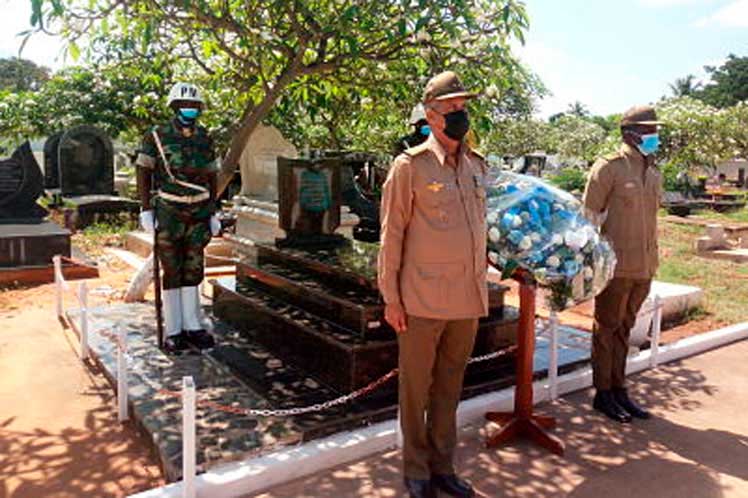The ceremony took place in the ‘Alto de las Cruces’ cemetery in Luanda.
“There are historic events that nothing and no one can erase,” collaborator Rafael Enrique Santaelena said when evoking the words of the historic leader of the Cuban Revolution, Fidel Castro.
Among the many merits of Díaz-Argüelles stands out his participation in the fight for Angola’s independence, in response to the request for military aid made by Antonio Agostinho Neto in August 1975, the official recalled.
Diaz-Argüelles, whose nom de guerre was Domingo da Silva, was killed in action in the early morning of December 11, 1975, in Hengo village, in Cuanza Sur province, during the battle of Ebo, which helped contain the movement of the invading troops from the then South African apartheid regime towards Luanda.
That day, his armored transport made contact with an anti-tank mine, Santaelena recalled, in a brief summary of the commander’s record.
Posthumously promoted to the rank of brigadier general on December 2, 1976, Diaz-Argüelles was also acknowledged years later with honorary title of Hero of the Republic of Cuba and in 2019, he was awarded with the Agostinho Neto Order post mortem, the highest distinction granted by the Angolan State.
jg/lcr/gas/mjm









